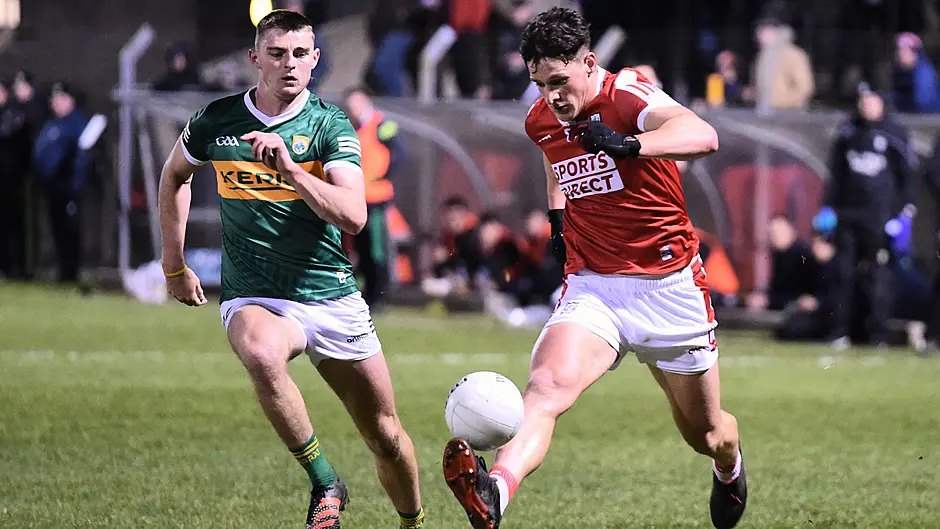
INNOVATION is crucial to success and development, be it in business or sport.
In Gaelic football, we have seen some key tactical innovations over the last decade that have changed the face of the game forever. The team that comes up with the next key development in our game that puts everybody thinking or in a lot of cases copying will be the team that’s one step ahead. Already this season, we are seeing further developments to our game – the top managers are always looking to push the boundaries.
With the exception of Dublin and perhaps Mayo, most of the innovation over the last decade has come from Ulster teams. It begs the question, why can’t we here in Cork be the innovators? Why are we always playing catch-up or playing copycat?
Innovation or the ability to come up with a new idea or method carries huge risks of course and takes courage and imagination. As a coach or manager, you are putting yourself out there. If it works, you’re a visionary; if it doesn’t, the critics will have the knives out.
When Jim McGuinness was appointed as Donegal manager, his reign deeply influenced and redefined the game in almost every practical sense. Tactical shape (both in defence and attack), the training-loads of players, the commitment, they all went to another level. At the same time, tactics are inherently reactive. One style starts to win and everybody else looks for a way to respond to it. The nature of that reaction will gravitate towards defensive or offensive strategies. Real innovation only occurs in the latter.
A defensive system relies on organisation while an offensive system requires huge imagination. Attack requires much more creativity. The pressure now is on teams to innovate in attack and progress from there. Traditional positions are a thing of the past. The modern day inter-county footballer has to be extremely versatile and must be effective, both from an attacking and defensive point of view.
Every team is now withdrawing numbers behind the ball and defending zonally, drifting with the ball position to close down attacking spaces. But the better teams’ answer is the ability to counter-attack at pace once a turnover has happened. This ability separated Kerry from the rest last year, as their first instinct was to try to get a 40-yard kick pass away to a hard-running ball-winning player in the half-forward position, who in turn looked for another quick ball inside to a Clifford or a Geaney. The double-kick, they called it. The quicker you can transition in the modern game the more successful you are going to be.
Of course, tactical fouling becomes the counter-measure here. A foul after you’ve coughed the ball up gives your team-mates those valuable few seconds to reset and get into formation. Another example of the tactical foul is when teams lose their own kickout. Prime time for a defining score, but a half-foul kills momentum straight away.
The majority of scores come from turnovers, as it is when the play is unstructured. The black card was meant to solve this problem but, like any new rule, the key is to find a way around it. Push the rules, break them if need be.
The Dubs elevated the standard of the game to such a level that there was even talk at one stage of splitting the county in two to give everyone else a chance. Their fitness levels, their running and kicking ability, their ability to unlock the packed defence and goalkeeper Stephen Cluxton. Cluxton’s kickout was unreadable, as he was playing it as he saw it. Now he had numerous targets, both long or short, and he invariably made the right decision and put the ball on a sixpence. He kicked frees, contributed from general play and reinvented the position.
The goalkeeper’s importance and influence grew from there. If you were watching Monaghan and Tyrone a few weeks back, you would have seen where the likes of Niall Morgan and Rory Beggan have taken the position. Modern-day football is all about creating the extra man and breaking the line.
These guys are now used to create the extra man. They can hurt you when they come up the field with their foot-passing ability, they contest kickouts, they take frees, they push out as an extra man when the high press is going on. A Gaelic football version of the American football quartertback.
In mentioning the high press, where teams are pushing up after a set-play to form three lines of four in the hope of turning over an intended short kickout or forcing the opposition long for a 50-50. The likes of these guys have developed their kickout ability to such a degree that the high press is seen as an attacking opportunity. Tyrone picked two giants in the form of Con Kilpatrick and Brian Kennedy at midfield when they won the All-Ireland in 2021, specifically for this purpose. Morgan has the boot to clear the lot and hit a player in a half-forward position running into space. So many opposition players have pushed up, that a goal is on if delivered correctly.
Cork will have had six weeks to reinvent themselves prior to the opening game in the All-Ireland series against Louth on May 27th. They have had time to reignite and innovate; it will be very interesting to see what materialises.









